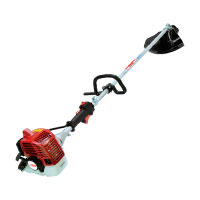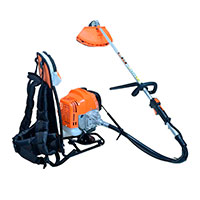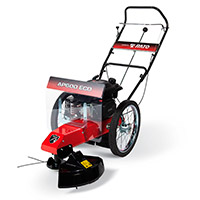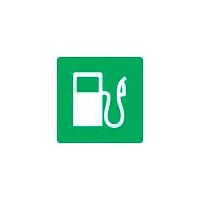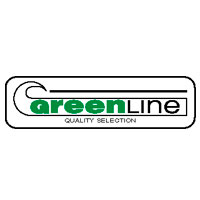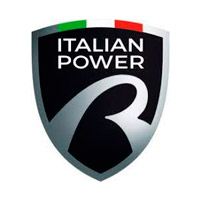Brushcutters: Complete Buying Guide
The brushcutter is a versatile and essential tool for the care and maintenance of gardens, green areas, fields, and plots of land. Used to cut grass, shrubs, brambles, and overgrown vegetation, the brushcutter helps keep outdoor areas clean and well-maintained.
Thanks to its variety of models and power options—such as electric, petrol, or battery-powered—the brushcutter can adapt to different needs and types of terrain. It is especially useful where grass is tall or dense, in hard-to-reach areas, or where a lawnmower would be ineffective. In addition to cutting and clearing vegetation, brushcutters can be used for edging, clearing uncultivated land, and preparing areas for sowing.
Types of Brushcutters
There are various types of brushcutters on the market. Here are the main ones:
- Electric Brushcutter
Typically used for domestic purposes, powered by a cable. Ideal for trimming edges and weeds in small gardens or vegetable patches. Offers practicality and precision. - Battery-Powered Brushcutter
Praised for its flexibility, this model allows movement without the limitation of a power cord. Battery life should be considered based on the duration of the mowing session. - Petrol Brushcutter
Ideal for larger areas or tougher vegetation where a more powerful machine is required. These models allow for more precise and quicker work sessions. Powered by petrol or fuel mixture engines. - Backpack Brushcutter
Also known as a shoulder-mounted brushcutter, this type is carried on the back. Recommended for long sessions or use on sloped terrain, as carrying the weight on the back enhances flexibility and freedom of movement. - Wheeled Brushcutter
A special brushcutter mounted on wheels, eliminating the need to carry the tool manually. Ideal for working on areas with tall grass, underbrush, and uneven terrain. Provides a uniform and precise cut, especially in large spaces. - Multitool or Multi-Function Brushcutter
A versatile device combining multiple functions in one tool. In addition to cutting grass and shrubs, it can be equipped with interchangeable accessories such as pruning blades, edgers, and hedge trimmers. Ideal for a wide range of garden maintenance tasks.

Handle Types
Brushcutters come with different types of handles:
- Single Handle
The most common type, allowing for agile handling. One hand grips the handle while the other operates the controls. Due to their light weight, these models are ideal for vertical trimming tasks. - Double Handle or Bike-Handle
Ideal for long horizontal mowing sessions. This handle type allows for a firm two-handed grip, distributing weight evenly and reducing fatigue. D-shaped or U-shaped handles provide comfort and control for precise movement across the ground. - Harness-Carried Brushcutter
A shoulder harness supports the tool during use. Adjustable and securely attached to the brushcutter, it offers greater safety and stability during operation.

Cutting System
The cutting system of a brushcutter is mainly composed of a cutting head or a blade mounted at the end of the shaft.
- Cutting Head: usually equipped with nylon line, suitable for cutting grass and light vegetation.
- Metal Blade or Cutting Disc: designed for clearing shrubs, bushes, and denser vegetation. Typically features 3-tooth blades, while cutting discs are used for heavy-duty tasks like small-scale forestry work.

2-Stroke vs 4-Stroke Engine
The engine type should be chosen based on user needs.
- 2-Stroke (Fuel Mix) Engine
Advantages: higher power output for the same displacement compared to 4-stroke, simpler construction, and easier maintenance. Disadvantages: higher vibrations, more noise, and higher emissions. - 4-Stroke Engine
Advantages: better fuel combustion efficiency, lower noise and vibration. Disadvantages: lower power, heavier, and generally shorter lifespan than 2-stroke models.
Engine Displacement
Engine displacement should be selected according to the size of the area to be maintained:
- 20 to 25 cc Brushcutter
Ideal for small to medium gardens, offering sufficient performance for standard maintenance tasks. - 30 to 40 cc Brushcutter
Suitable for medium-sized gardens. - 45 to 60 cc Brushcutter
Best for areas with thick brambles or heavy-duty cutting. These are professional-grade, high-power models.
In conclusion, the right brushcutter depends on your specific needs. Whether electric, battery-powered, or petrol, these tools offer great versatility for every type of environment. From small gardens to large plots, a brushcutter is a reliable ally to keep outdoor spaces tidy and safe. With a wide range of handles, engines, and accessories, users can customize their choice to suit the job. The right model becomes an indispensable tool for effective green care.
Supply
Brands
Best Sellers


Hyundai LDMT430
4 in 1 Multifunction Brushcutter
42.7 cc - 1.7 HP
2-STROKE MIXTURE

EGO ST1613E-T POWERLOAD
Rigid Shaft Brush Cutter
4 Ah Battery Kit + Standard...
Cut 40 cm
Battery + Charger Included


GreenLine GL 53-ZN
Shoulder Brushcutter
26mm
2 stroke mixture

EGO ST1401E-ST POWERLOAD
35 cm Corded Brush Cutter
Battery Kit + Standard Charger
Cut 35 cm
Battery + Charger Included

EGO ST1301E-S
EgoPower+ Pro Brushcutter
2.5 Ah Battery Kit + Charger
Taglio 33 cm
Motore Brushless

EGO PH1420E
Multi-Tool Motor Group
Compatible with Multi-Tool Accessories
For Multi-Tool Accessories
Compatible with EGO batteries

